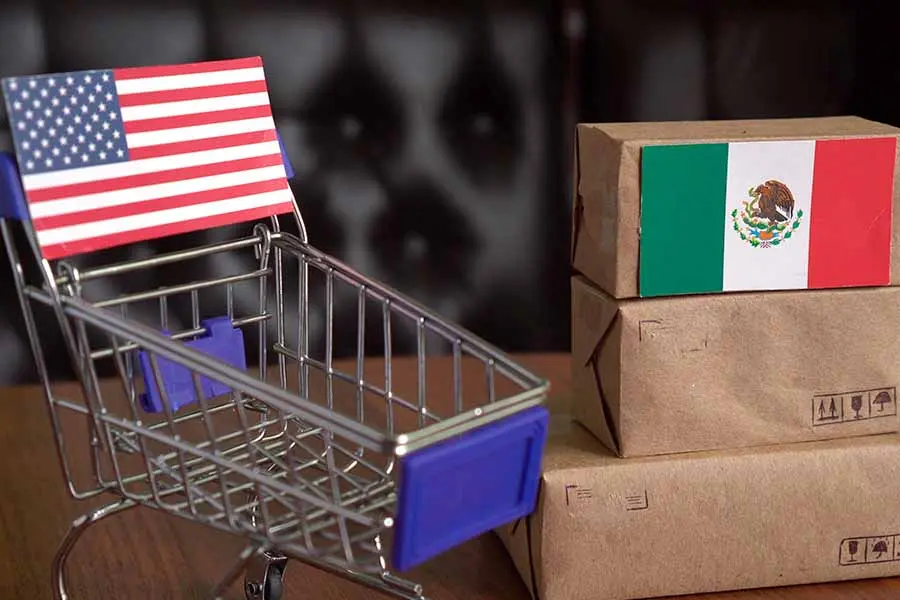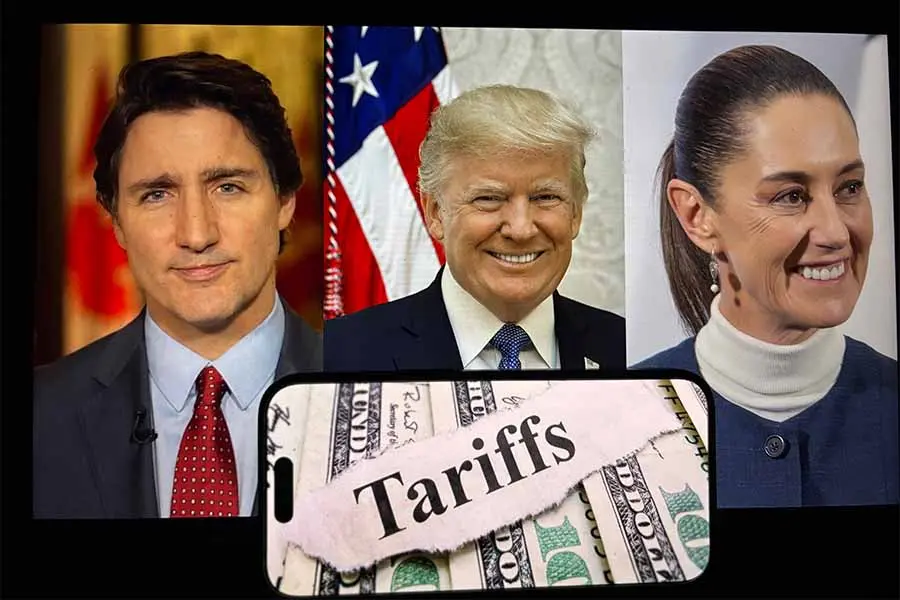How would the tariffs the United States government intends to impose on Mexico affect Mexicans?
The impact will depend on the sector analyzed. Overall, we believe that it could affect economic growth, explains Cynthia Valeriano, a professor at the School of Social Sciences & Government on Tec de Monterrey’s Toluca campus, who says:
“On a day-to-day basis, companies will reduce production. When that happens, there are layoffs, there are no jobs, there’s no income for families, and consumption decreases. This becomes a vicious circle resulting in an economic recession.”
These and other repercussions for the country have been analyzed by the professor, who acknowledges that there will also be a social impact as well as an economic one due to increased uncertainty and job losses.

The academic shared that a study by the Brookings Institution, a global research center specializing in public policy, estimates that Mexico could lose more than 2 million jobs in 2025 if a reduction in the tariffs is not negotiated.
“Negotiations and agreements will be essential to mitigating the consequences.”
“We’re facing a complex situation where the economic effects will be felt in various manufacturing sectors. Negotiations and agreements—by the federal government—will be essential to mitigating the consequences.”
Enterprise and employment
Mexico is part of the United States-Mexico-Canada trade agreement known as the USMCA. As part of this union, the tariffs announced would jeopardize the competitiveness of Mexican companies, Valeriano says.
She adds that as a result, jobs would be threatened, especially in automotive, agro-industrial, and pharmaceutical sectors.
“In the short term, we could see a reduction in U.S. consumption as product prices increase.
However, if these measures last for more than a year, the U.S. economy could be strengthened because they would expand their labor market and manufacturing, thereby affecting economies like Mexico and Canada,” she says.
Cynthia Valeriano explains that industry sectors, such as those in the State of Mexico’s corridor, could be affected since 30% of its GDP depends on the manufacturing industry.
She says these companies could slow down investments and cut staff, an effect that was first felt in late 2024.
Mexico’s options in response to tariffs
Professor Valeriano says that imposing similar Mexican tariffs to counter the intentions of U.S. President Donald Trump’s administration wouldn’t be the best option.
It could cause a contraction in Mexican GDP of up to 3%, while not retaliating and looking for alternative solutions would reduce the decline to around 1.14%.
“The imposition of these taxes poses a challenge to the economy, but the key is to mitigate the impact. If Mexico manages to negotiate tariff exemptions for specific sectors or periods, the economic blow could be softened,” she says.
“The Mexican government’s stance, urging calm while strategies are analyzed, seems appropriate to me.
“Although it doesn’t eliminate the unease, it does send a message of control and willingness to engage in dialogue.”
At the state level, she talks about how governments could implement tax incentives, reduce payroll taxes, and cooperate with chambers of commerce to find solutions.

Tariffs, who pays the price?
According to the professor, tariffs are taxes applied to imports and exports with the primary objective of protecting a country’s domestic industries.
According to Cynthia Valeriano, the U.S. government’s decision to impose ad valorem tariffs, calculated based on the market price of the product, leads to an increase in the final cost which ultimately falls on consumers.
“The government doesn’t directly withhold this tax; it’s borne by those who buy or acquire these products, i.e., by American consumers, who would consume goods imported from Mexico,” she concluded.
READ ALSO:





